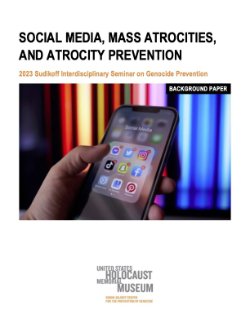By Solomon, Daniel; Donine, Tallan
From the document: "In 2018, anti-Muslim extremists in Sri Lanka organized a series of attacks against Muslim civilians throughout the country [...]. Extremist leaders used a misleading viral video to stoke fears that the country's Muslim minority was organizing a campaign to sterilize the majority Sinhalese population en masse. The video circulated widely on Facebook, and participants in the violence also set up private WhatsApp groups to coordinate the violence. This is just one example of a disturbing pattern that is increasingly under the spotlight: social media seeming to fuel violence, including large-scale and deliberate attacks on civilians based on their identity. [...] The goal of this paper is to stimulate and frame discussion during the Sudikoff Interdisciplinary Seminar on Genocide Prevention about the relationship between social media technologies and the risk and prevention of mass atrocities. Based on a review of relevant research, policy documents, and public statements by social media companies, the paper surveys current knowledge and identifies important gaps in understanding about (1) how social media platforms have contributed to the risk and occurrence of mass atrocities in the past and how they might do so in the future;1 and (2) strategies to help prevent social media from fueling mass atrocities."
United States Holocaust Memorial Museum. 2023. 26p.


